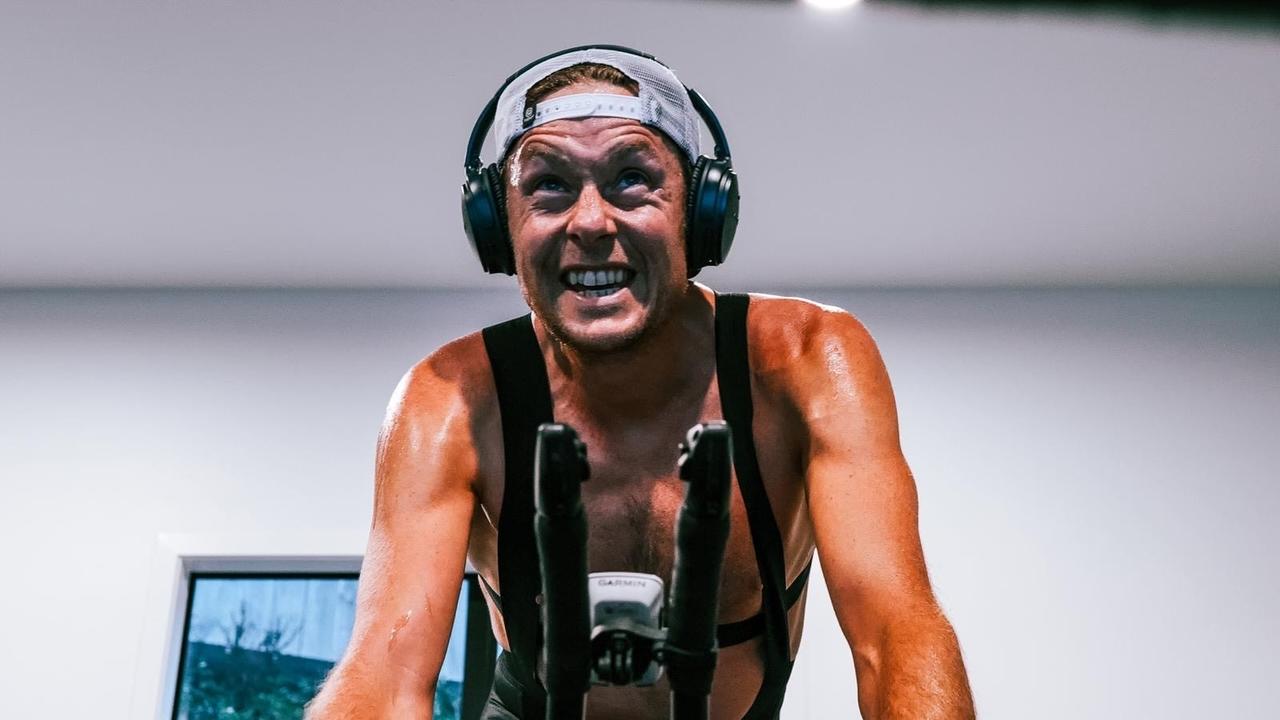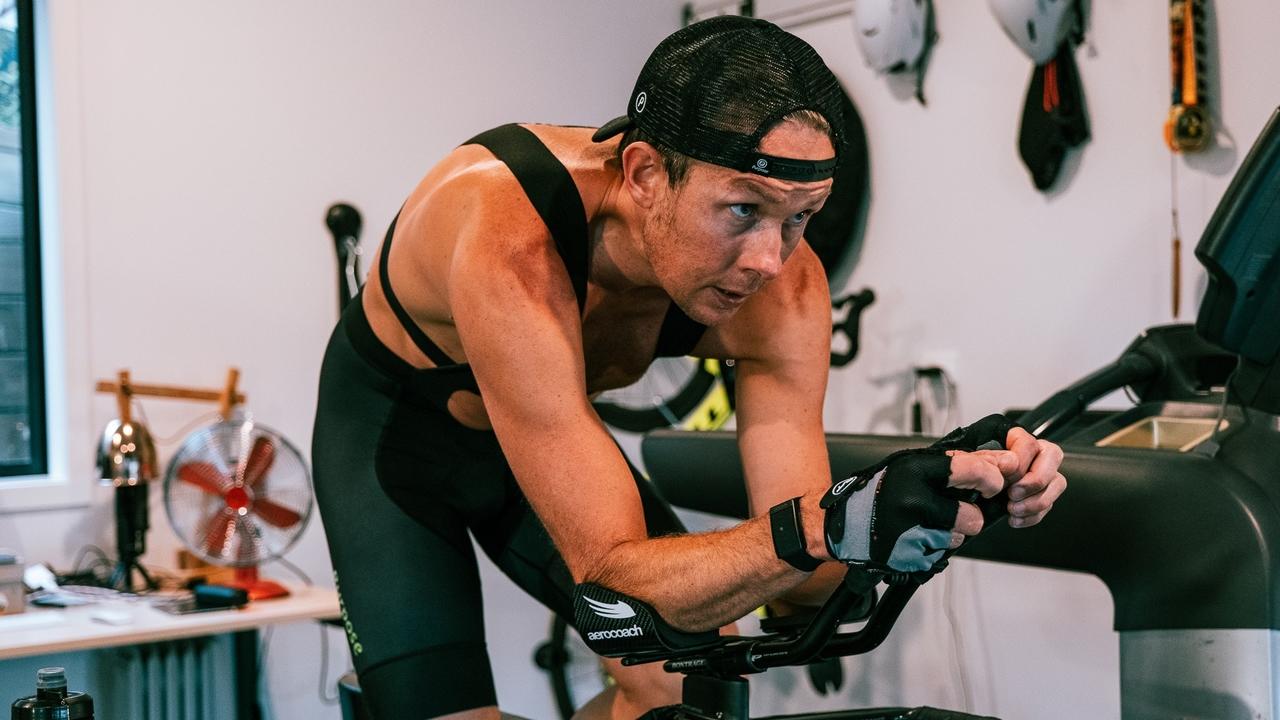Jan van Berkel's 8-Year Marathon Training Evolution

On July 9th, 2023, Jan van Berkel, also known as "The Berklizer," triumphantly crossed the finish line at Ironman Switzerland, claiming 1st place. This race marked his final appearance as a professional triathlete, and as a coach, I can confidently say that witnessing this moment was one of the most emotional experiences I've ever had. From the exhilaration of his 4th race victory to the poignancy of concluding an almost 8-year coaching partnership, the range of emotions was remarkable. Coaches understand that, next to family, the professional athletes we guide hold a significant place in our daily lives. Jan had evolved into not just a athlete I work with professionally, but a close friend. The thought of the daily interactions coming to an end was a strange feeling, although true friendships are enduring.
My collaboration with Jan began during my tenure with Rowing New Zealand as the Head of Performance Physiology. The connection emerged after Eric Murray, a 2-time Olympic Gold Meda...
Should I train my gut? Both sides of the coin on preserving endogenous carbohydrates

- Dan Plews and Ed Maunder
As we have mentioned in previous blogs, during ultra-endurance events lasting ~8-15 hours like long-distance triathlon, the preservation of endogenous carbohydrate (CHO) stores is one of the key determinants of success (25). As humans, we possess a finite capacity to store CHO energy as glycogen, typically <3000 kcal, of which ~80% is stored in muscle and ~10-15% in the liver (7). Assuming typical running economy values observed in highly-trained distance runners (1.07 kcal.kg-1.km-1) (6) and a body mass of 68 kg, these endogenous CHO stores would not be sufficient to support even one marathon alone (~3070 kcal), let alone a marathon following a 3.8-km swim and a 180-km bike ride. Accordingly, exercise of sufficient duration and intensity – such as an Ironman – will deplete these endogenous CHO energy stores to very low concentrations, and this glycogen depletion has been linked to the fatigue we feel in the late stages of a race (27–29).
Theref...
Exogenous ketones: Something to add to your recovery drink?

We all love a good "pain face" and we all know how much those high intensity interval sessions hurt! Such big sessions, require big recovery; and recovery optimization is always a key question for athletes, sports scientists and coaches looking for a performance advantage. With media reports circulating that many elite road cycling teams are investing huge sums of money in exogenous ketone supplements for their athletes (7), many of us in endurance sport – including the scientists – are asking if exogenous ketones are the next magic bullet in sports nutrition (4). We blogged about exogenous ketones recently, specifically using some of our own data and a recently published review (8) to survey the evidence for supplementing with exogenous ketones during a long-distance triathlon. In this blog, we are going to focus instead on the possible benefits of exogenous ketone supplementation for recovery.
Background
Before diving into specific original studies assessing the effect of ...
Should we take exogenous ketones during a long-distance triathlon?

- Dr Dan Plews and Ed Maunder
A review of the review by David M. Shaw et al. Sports Medicine 50(4): 641-656, 2020
In this blog, we are going to summarize a recently published review by former AUT PhD student Dave Shaw on the evidence for and against exogenous ketone ingestion (11), as well as some of our own personal experiences. Dave’s PhD included studies on both the ingestion of exogenous ketones in a sports drink and longer-term adaptation to a very low-carbohydrate, ketogenic diet (10, 12), with one of the main purposes of this review being to highlight the stark differences between these two interventions. In this blog however, we are going to focus on studies of exogenous ketone supplementation for endurance performance. Ed (PhD student & Endure IQ LDT102 guest instructor) was fortunate enough to be part of the team of authors writing the review.
Exogenous ketones
A point here to note is that when we discuss exogenous ketones, we are not referring to ingestion ...
VIDEO: Low Carb Triathlon Training - Latest Research Findings from Dr Dan Plews
In this video, Dr Dan Plews gives an overview of his latest research (12 week very low carbohydrate (<50g) sports performance study) involving low carbohydrate diets (<50g) in recreationally trained athletes. This study is unique, as to our knowledge, it's one of the longest Low Carb High Fat (LCHF) studies conducted.
Watch the video to get Dan's take on the Low Carb Triathlon training needed, and understand what this data means for those LCHF athletes training for Long Distance Triathlon!
Click here for more information on our online course Endure IQ LDT101: The Practical Application of Low Carbohydrate Performance for Long Distance Triathlon.
Jan Van Berkel: The Ketocop on the Low Carb Healthy Fat Diet

Fresh off the plane from Zurich, I’m still on a high after seeing my good friend and athlete Jan van Berkel finished on top of the podium at the last ever Zurich-hosted Ironman Switzerland last weekend in a blistering time of 8:17:04. Jan likes to call himself The Ketocop, so the title of this blog is very appropriate.
Jan led the field out of the water with a 51:38 swim, led the field off the bike after a 4:35:14, and romped home to a 6-min victory over countryman Sven Riederer after a 2:46:41 marathon. Jan’s victory seems like an appropriate time to talk you through the journey we have been on through his Ironman career to date.
Jan approached me in 2016 as a very talented triathlete with quality results in Olympic distance triathlon but he was struggling to transition to Ironman. He had, as many do, been consistently blowing up in the last 10-15 km of the marathon, full of gels but out of gas. Given his pedigree at the Olympic distance, I certainly could see the potential in...
VIDEO: Protein Requirements and Low Carbohydrate Availability Research
In this video, Dr Dan Plews discusses a recent study conducted by researchers at the University of Ontario in Canada, led by Jenna Gillen and Daniel Moore.
This team of researchers can be considered experts in the topic of the research, which was titled “Low-carbohydrate training increases the protein requirements of endurance athletes” and recently published in Medicine and Science in Sports and Exercise.
Watch the video to understand why endurance athletes restricting carbohydrate around training sessions (e.g. low carbohydrate training and fasted training) have elevated dietary protein requirements, and why eating too little protein could mean failure to capitalise on those precious adaptations gained through training.
For our Endure IQ protein shake mentioned in the video please complete the form below to access the download.
If you would like to find out more information on the LCHF approach to long distance triathlon, check out our website www.endureiq.com/why-ldt101
How do I fuel my races with low carb healthy fat? - Fat Oxidation and Race Fuelling (Part 1)

While down at the event, Prof Grant Schofield and I were invited to present on the low carbohydrate healthy fat (LCHF) performance for Ironman.
The link to the presentation can be found in this closed Facebook group here (anyone can join), and we think it was quite well received with 50+ people attending.
However, as always around racing, one of the main questions we always receive is “how do I fuel my races with LCHF?”. Luckily, along with two of my endurance physiology colleagues at AUT, we discussed this very topic in a paper that used theoretical energy fuel requirements of Ironman triathletes at different performance levels (~8 h, ~9 h, and ~13 h).
This paper was published in the Journal of Sports Medicine, and I’ve tried to summarise below. The science is quite heavy so I will split this blog into two parts...
